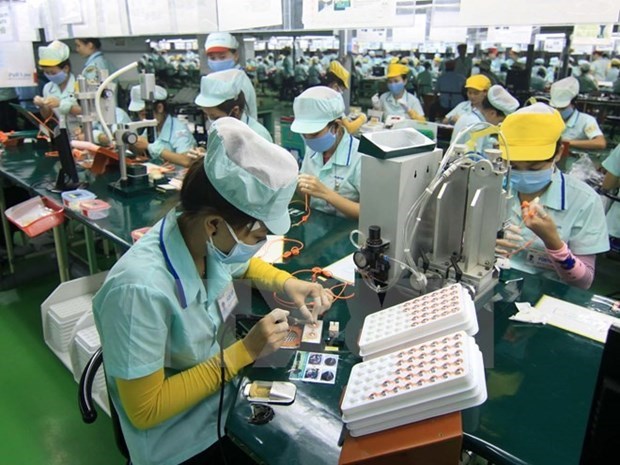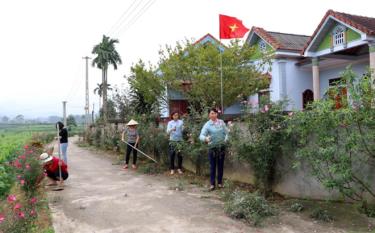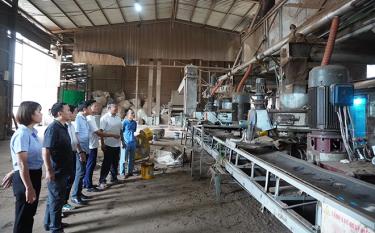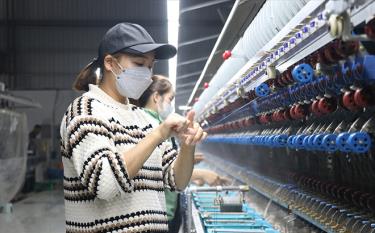According to the Ministry of Industry and Trade, currently many industrial firms of Vietnam have not mastered the core technology, and they mainly join sections of low technological contents and added values.
Industry is taken as one of the important spearhead sector that can contribute to the economic growth. Yet, over the recent past, the development of many sectors like engineering, automobile and even support industry still fail to catch up with the common development of many countries in the region.
This is also a main content discussed by the Ministry of Industry and Trade in a recent Hanoi meeting on the industrial development
A report by the Ministry of Industry and Trade pointed out major shortcomings in industry, especially the low production efficiency in terms of added value and export. Besides, most of the values created are from foreign directed investment (FDI) firms and Vietnam’s exports still largely depend on imported materials.
A report also showed that the FDI sector recorded a trade surplus of 18.6 billion USD in the first half of last year and it always occupied more than 70 percent of Vietnam’s total export revenue.
According to Truong Thanh Hoai, Director of the Industry Department, there are only nearly 80,000 firms in the processing and manufacturing sector. Besides, their financial and technological capacity is very limited, and they have not mastered the core technology while mainly joining the segments of low contents of technology and added value. As a result, they have not been able to develop their trademarks.
Realities are showing the starting point of Vietnam’s industry is low while the policies on industrial development in the recent past are of low quality, stretched and unstable. It is more important that industrial groups of regional and international scales in the processing and manufacturing sector are still out of sight.
Also in the time under review, the volume of imported completely built automobiles (from 5 to 16 seats) increased by 400 percent compared to the same period a year earllier and this, in Director of the Import-Export Department of the Ministry of Industry and Trade Phan Van Chinh’s idea, is very attention-worthy for concerted policies to be built so as to develop the domestic automobile industry.
One of the requirements in increasing the export value, Chinh said, is the origin, the rate of localisation of the products and the databases of the industries.
Meanwhile, Deputy Director of the Trade Protection Department Pham Chau Giang said more than 95 percent of the incidents related to trade protection are products of the processing and manufacturing industry like iron, steel and aluminum.
However, the perception of domestic enterprises and their ability in responding to trade protection measures are lower than those of FDI firms.
In face of this, Minister Anh asked departments to assess the current policies and their impact so as to work out proposals and to join hands with relevant authorities to basically and best solve trade problems.
They also need to review and reassess the implementation of the policies in the recent past so as to well utilise the chances created by the international economic integration.
According to Hoai, the Industry Department is collaborating with ministries and sectors to build policies and solutions to develop a number of priority industries of considerable development potential and chances like automobile, garment, leather, electronics, minerals and support industries. At the same time, development orientations and policies are being built in accordance with the potential and advantages of localities.
The official also asked for State support to capable small- and medium-sized enterprises in becoming reliable production partners of global production chains. Besides, he also touched upon the building of policies to support selectively a number of firms of considerable potential to become groups of regional and international groups, with special attention to the protection of the domestic markets and expansion of the international one.
VNA






